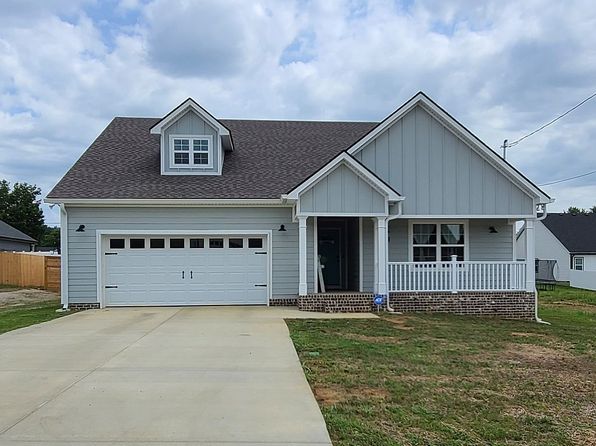For Sale By Owner In Tennessee

The real estate landscape in Tennessee is shifting, with more homeowners opting to bypass traditional real estate agents and navigate the complexities of selling their properties independently. This "For Sale By Owner" (FSBO) trend, while potentially lucrative, presents a unique set of challenges and rewards for both sellers and buyers alike. Are Tennesseans equipped to handle the legal, financial, and marketing intricacies of such transactions, and what impact is this DIY approach having on the state's housing market?
At its core, the FSBO movement in Tennessee is fueled by a desire to save on commission fees, which typically range from 5% to 6% of the sale price. This article delves into the intricacies of FSBO transactions in Tennessee, examining the potential benefits and pitfalls, the legal considerations, the role of technology, and the overall impact on the state's real estate market. We'll explore whether this path truly leads to greater savings and control, or if it exposes sellers to unforeseen risks and complexities. Understanding these nuances is crucial for anyone considering buying or selling property in the Volunteer State.
The Allure of Savings and Control
The primary driver behind the FSBO trend is the potential for significant cost savings. By eliminating realtor commissions, sellers can pocket thousands of dollars, especially in Tennessee's increasingly competitive housing market. For example, on a $400,000 home, a 6% commission would amount to $24,000, a substantial sum that could be reinvested or used to pay off debt.
Beyond the financial aspect, many sellers value the control they gain over the entire sales process. They can set their own prices, schedule showings at their convenience, and directly negotiate with potential buyers. This hands-on approach appeals to those who prefer to be actively involved in every step of the transaction.
Navigating the Legal Minefield
Selling a home is a complex legal process, and FSBO sellers must be prepared to handle the paperwork and disclosures typically managed by real estate agents. Tennessee law requires sellers to disclose any known defects or issues with the property, and failure to do so can result in costly lawsuits down the line. A well-drafted purchase agreement is crucial, outlining the terms of the sale, including price, closing date, and contingencies.
According to the Tennessee Association of Realtors, using a qualified real estate attorney is highly recommended to ensure compliance with all applicable laws and regulations. An attorney can help sellers navigate the complexities of the legal documents, negotiate on their behalf, and protect their interests throughout the transaction. The cost of legal representation is a fraction of the commission fees, offering valuable protection.
Marketing and Showings: A DIY Approach
Successfully selling a home requires effective marketing, and FSBO sellers must take on the responsibility of promoting their property. This includes creating compelling listings with high-quality photos, staging the home for showings, and advertising on various platforms. While websites like Zillow and FSBO.com offer tools for listing properties, attracting potential buyers requires more than just online exposure.
Holding open houses and scheduling individual showings can be time-consuming and challenging, especially for sellers with busy schedules. They must also be prepared to answer questions from potential buyers and negotiate offers without the guidance of a professional. Pricing the home accurately is critical to attracting buyers and achieving a timely sale, requiring careful research of comparable properties in the area.
The Buyer's Perspective on FSBO
For buyers, purchasing a home directly from the owner can present both opportunities and challenges. While some buyers see it as a chance to negotiate a lower price, others are wary of dealing with an inexperienced seller. Without a buyer's agent to represent their interests, buyers must be diligent in conducting their own research and inspections.
Having their own attorney review the purchase agreement is highly recommended for buyers engaging in FSBO transactions. A lawyer can ensure that the contract protects their interests and that all necessary disclosures have been made. The National Association of Home Builders suggests that independent inspections are essential, potentially revealing hidden issues.
Technology's Role in Empowering FSBO Sellers
Technology has played a significant role in empowering FSBO sellers, providing them with tools and resources that were previously only available to real estate professionals. Online platforms offer listing services, marketing tools, and resources for pricing and staging homes. Virtual tours and online marketing strategies have become increasingly important, allowing sellers to reach a wider audience.
Social media platforms and targeted advertising can also be effective tools for promoting FSBO properties. By leveraging technology, sellers can reach potential buyers directly, bypassing the traditional gatekeepers of the real estate industry.
However, the ease of access to these tools doesn't guarantee success; sellers still need a solid understanding of marketing principles and real estate practices.
The Impact on the Tennessee Housing Market
While FSBO transactions account for a relatively small percentage of the overall housing market in Tennessee, their presence is growing. The increasing popularity of FSBO reflects a broader trend of consumers seeking greater control and cost savings in various aspects of their lives. The impact on the market is complex, with potential benefits and drawbacks for both buyers and sellers.
The Tennessee Real Estate Commission regulates real estate transactions in the state, and FSBO sellers are subject to the same laws and regulations as licensed real estate agents. The commission emphasizes the importance of transparency and disclosure in all real estate transactions, regardless of whether an agent is involved.
Ultimately, the success of FSBO in Tennessee hinges on the knowledge, diligence, and preparedness of both sellers and buyers.
The Future of FSBO in the Volunteer State
The FSBO trend in Tennessee is likely to continue, driven by technology, rising commission costs, and a desire for greater control. As more resources become available to DIY sellers, the perceived barriers to entry will continue to diminish. However, the complexities of real estate transactions remain, and FSBO sellers must be prepared to navigate the legal, financial, and marketing challenges involved.
Whether FSBO becomes a dominant force in the Tennessee real estate market remains to be seen. The traditional real estate model still offers valuable expertise and guidance, particularly for those unfamiliar with the intricacies of buying and selling property. Moving forward, education and awareness will be crucial in ensuring that both FSBO sellers and buyers are equipped to make informed decisions and protect their interests.


















